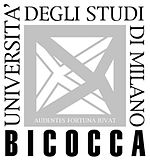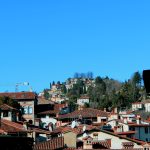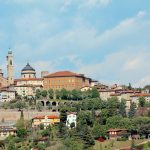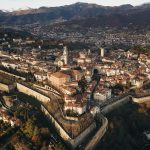The University of Milano Bicocca, located in the town of Bergamo in the Lombardy region of Italy, is a world-renowned institution of higher learning that attracts students from around the globe. The university is known for its outstanding academic programs, its commitment to research and innovation, and its vibrant and diverse student community.
The medical program at the University of Milano Bicocca is one of the most prestigious in Italy, offering students a comprehensive education and hands-on experience that prepares them for successful careers in healthcare. With a focus on practical training and a strong emphasis on research, the program is designed to give students the knowledge and skills they need to succeed in the constantly evolving field of medicine.
In this article, we will take a closer look at what makes the medical program at the University of Milano Bicocca so special. We will explore the university’s facilities, faculty, and curriculum, as well as the unique opportunities that studying in Bergamo and the surrounding area offers. Whether you are a prospective student or simply interested in learning more about the university, read on to discover why the University of Milano Bicocca is such a special place to study medicine.
Content Quick Navigation
Timetable
The University of Milano Bicocca’s medical program follows a similar academic schedule to most Italian universities, with the year divided into two semesters: October-December for the first semester and January-May for the second semester. Students can expect to attend morning and afternoon classes throughout their six years of study at the university.
In the first three years of the program, classes are held mostly in the morning, starting around 8:00 am and lasting until 1:00 pm. From the fourth year onwards, classes begin slightly later at around 9:00 am. Afternoon classes typically run from 2:00 pm to 6:00 pm. This schedule provides students with ample time for independent study, research, and clinical experience, while still ensuring that they receive a comprehensive and well-rounded education.
It is worth noting that the University of Milano Bicocca’s medical program is demanding and requires a significant amount of time and effort from students. However, the schedule is designed to give students the time and support they need to succeed, with ample opportunities for individualized instruction, research, and practical experience.
In conclusion, the University of Milano Bicocca’s medical program provides students with a comprehensive education and practical experience that prepares them for successful careers in healthcare. The program’s academic schedule, with morning and afternoon classes throughout the six years of study, is designed to give students the time and support they need to succeed. Whether you are a prospective student or simply interested in learning more about the program, the University of Milano Bicocca’s medical program offers a challenging and rewarding experience for those committed to pursuing a career in medicine.
IMAT Minimum Scores
| Year | Minimum Score (Non-European) | European Scores (First/Last Round) |
|---|---|---|
| 2020 | 26.7 | First: 57.5 / Last: 44.6 |
| 2021 | 42.3 | First: 51.6 / Last: 36.3 |
| 2022 | 49.2 | First: 50.1 / Last: 41 |
| 2023 | 54.2 | First: 46.2 / Last: 43.3 |
Exams
The University of Milano Bicocca’s medical program boasts a unique examination system that sets it apart from other universities. While exams can vary depending on the professor, they generally consist of multiple-choice, oral, or essay-style tests. However, the exams are structured around a system of “blocking subjects,” where students must pass a prerequisite subject before progressing to more advanced topics. For example, anatomy in the first year is a blocking subject for physiology and pathology. Students can continue to attend classes with their enrolled year but cannot participate in exams that require the blocking subject.
Although the system may seem strict, it ensures that students have a solid foundation of knowledge before progressing to more advanced topics. Additionally, it helps to prevent students from becoming overwhelmed by the demands of the curriculum.
Aside from the unique examination system, the University of Milano Bicocca’s medical program also emphasizes the integration of technology and computer science into the curriculum. This innovative approach helps students develop the skills and knowledge necessary to succeed in a rapidly evolving field.
As “doctors of the future,” students are given the opportunity to study components of computer science and work alongside robotics in practical medical environments. By leveraging cutting-edge technology, students can gain a better understanding of the latest developments in the field of medicine and become better equipped to tackle the challenges of the modern healthcare landscape.
In conclusion, the University of Milano Bicocca’s medical program offers a unique approach to medical education, with a focus on both traditional coursework and the integration of technology and computer science. With a rigorous examination system that ensures students have a solid foundation of knowledge and practical experience working alongside cutting-edge technology, graduates of the program are well-prepared for successful careers in healthcare.
The History of The University of Milano Biccoca
The University of Milano-Bicocca is a modern and innovative institution located in the bustling city of Milan, Italy. The university was founded in 1998, but its roots can be traced back to the 14th century when the Studium Generale was established in Milan.
Today, the University of Milano-Bicocca is renowned for its research in a variety of fields, including medicine. In fact, the university is home to the Department of Medicine and Surgery, which offers undergraduate and graduate programs in medicine, dentistry, and other health-related fields.
The university’s medical faculty has a strong emphasis on research and innovation, with a particular focus on cutting-edge medical technologies and techniques. Researchers at the university have been involved in groundbreaking studies in areas such as cancer, genetics, and neurology, and the faculty boasts a number of internationally recognized experts in these fields.
In more recent years, the University of Milano-Bicocca has continued to lead the way in medical research and education. The university has established partnerships with some of the world’s leading medical institutions, and its faculty and students are actively involved in a variety of international research projects.
Overall, the University of Milano-Bicocca is a vibrant and dynamic institution with a strong focus on innovation and research in medicine and other fields. Its faculty and students are making significant contributions to the advancement of medical knowledge and practice, both in Italy and around the world.
Tuition Fees and Scholarships
The University of Milano Bicocca’s medical program is affordable compared to other universities in Italy, with international students paying around €600 Euro per year, with the first year possibly being as low as €156 Euro. The university provides a full breakdown of fees by course, which can be found on their website.
Living expenses can vary depending on the student’s lifestyle and living arrangements. Estimates from various sources place the average monthly living expenses between €659 Euro and €1367 Euro per month, not including university expenses. Students should budget for accommodation, food, transportation, and other necessary expenses to ensure they have a comfortable and enjoyable experience while studying at the university.
Fortunately, the university offers scholarships and financial aid programs to help offset the cost of tuition and living expenses. These programs are run by EDISU, the same body that manages scholarships for other universities in the region, such as IMS and Pavia. The scholarships are generous, providing grants of up to 5K, free cafeteria food, and even housing, with a total value of almost 7.5k in scholarship. International students are encouraged to explore these options to help alleviate the financial burden of studying abroad.
In conclusion, while studying at the University of Milano Bicocca’s medical program does require a financial investment, there are several options available to help make it affordable. With relatively low tuition fees, affordable living expenses, and generous scholarship programs, students can pursue their dreams of becoming healthcare professionals without incurring an excessive financial burden. It is worth noting that these costs are subject to change, and students are encouraged to consult with the university or relevant bodies for the most up-to-date information.
Cost of Living
The cost of living in Bergamo, where the University of Milano Bicocca is located, can vary depending on the student’s lifestyle and living arrangements. However, as with most Italian cities, the cost of living can be quite affordable for students. Compared to other popular student cities such as Milan and Rome, Bergamo is known for being more affordable while still providing a high quality of life.
On average, student housing can range from 250-500 euros per month, depending on the location and type of accommodation. Students should also budget for food and groceries, which can cost approximately 200-300 euros per month. Transportation costs are also an important consideration, with a monthly bus pass costing around 40-70 euros. Additionally, students should budget for books and study materials, which can cost around 200-300 euros per year. It’s also worth noting that health insurance is mandatory for all students and can cost between 149-215 euros per year.
To help students budget for their expenses, here is a table of common student necessities and their estimated costs:
| Expense | Estimated Cost (EUR) |
| Student housing | 250-500 per month |
| Food and groceries | 200-300 per month |
| Transportation (bus pass) | 40-70 per month |
| Books and study materials | 200-300 per year |
| Health insurance | 149-215 per year |
| Mobile phone plan | 10-30 per month |
| Internet and utilities | 50-100 per month |
| Leisure activities (movies, dining out, etc.) | 100-200 per month |
It’s important to remember that these are just estimates, and costs can vary depending on the student’s lifestyle and living arrangements. However, with some planning and budgeting, students can enjoy all that Bergamo has to offer while still maintaining a comfortable and affordable lifestyle.

















